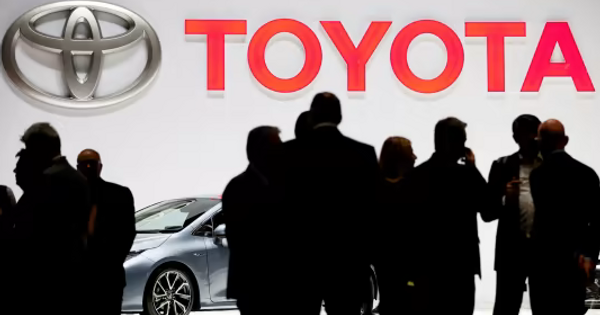Spending $ 35 billion on electric cars is still slow, the Japanese giant points out the great potential that pure electric car manufacturers have missed.
- Tram Ho
The world’s largest carmaker, Japan’s Toyota, is responding to criticism that it is falling behind rivals in electric vehicles and is even working to halt the transition. to develop electric vehicles.
Toyota is often remembered as a pioneer in the field of green cars when it introduced the Prius – the world’s most popular hybrid vehicle in 1997. The Prius combines a gasoline combustion engine with an electric motor and small battery. . This allows drivers to significantly increase fuel economy compared to cars powered by a traditional internal combustion engine.

Immediately, new technology in the vehicle industry brought a “craze” in sales. The automaker has sold a total of 20 million hybrids, trucks, and SUVs worldwide, and 5.4 million in the US alone. Toyota already offers hybrid versions of much of its remaining product line.
For a long time, Toyota leaders have argued that there are fundamental technical challenges to battery-powered electric vehicles – they take a long time to charge, require heavy and expensive batteries, and range. activity is still limited.
Automotive industry analysts say those criticisms are now less valuable due to recent improvements in battery technology. More importantly, the companies have found a name that stands for the strong electric vehicle business: Tesla, which is now the top car brand in the US.

Toyota’s new $35 billion investment announced in December 2021 includes a plan to introduce 30 electric vehicle models by 2030. This is just under a quarter of the more than 130 models it sells. currently in production. Toyota said it will invest an equal amount in hybrids and hydrogen fuel cell vehicles.
Gartner, an auto industry research firm, expects gasoline-burning engines to still account for about 50% of sales by the early 2030s.
“We still think that in 10 years, 50% of new car sales will be gasoline,” said Mike Ramsey, vice president of CIO Research at Gartner. And if you look at the global car numbers, that will almost certainly be true. In countries like Nigeria, Iran, and Indonesia, it is unlikely that electric vehicles will account for 50% of sales when people are still very fond of petrol cars. That’s why pure electric car companies like Tesla have ignored this “fat” piece of cake.
But the automaker says it believes in an all-electric future. However, the company stressed that it will not be able to reach all of Toyota’s markets at once. Therefore, they will still fully exploit and cannot ignore the market where gasoline cars are still doing well.
Reference: Bloomberg
Source : Genk
